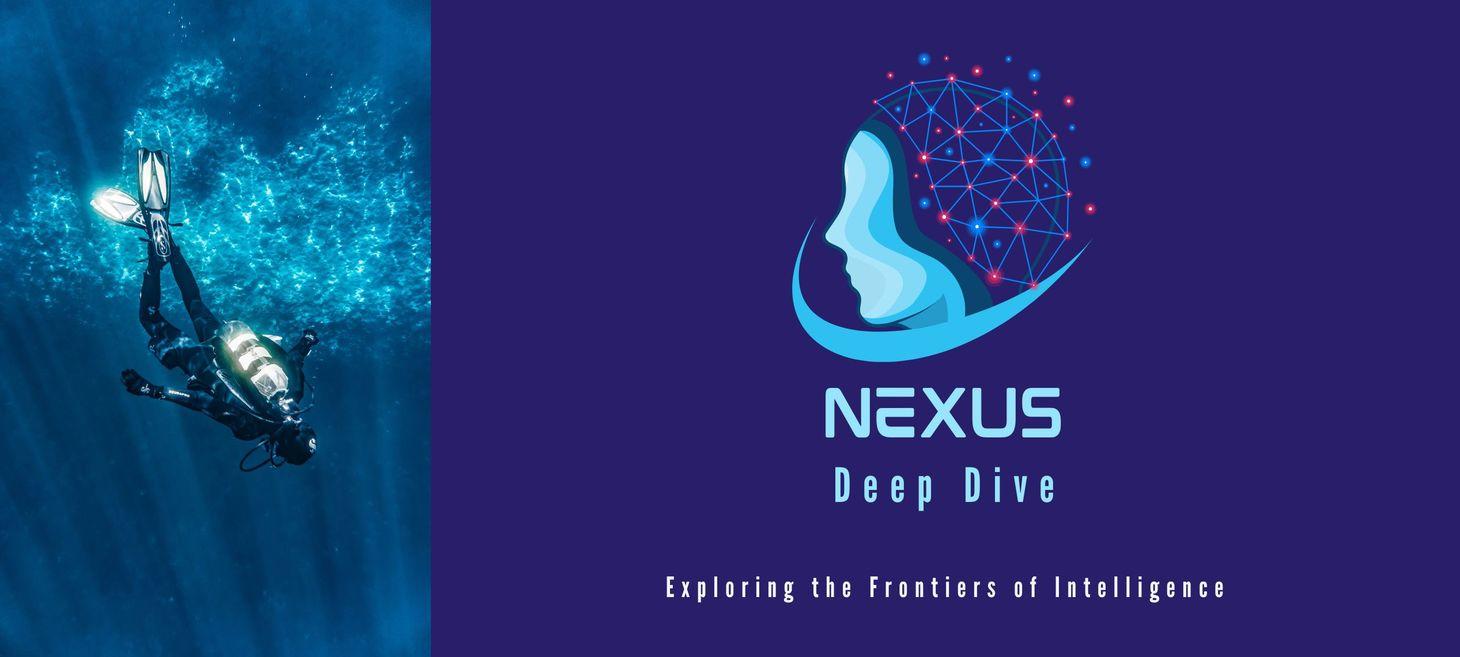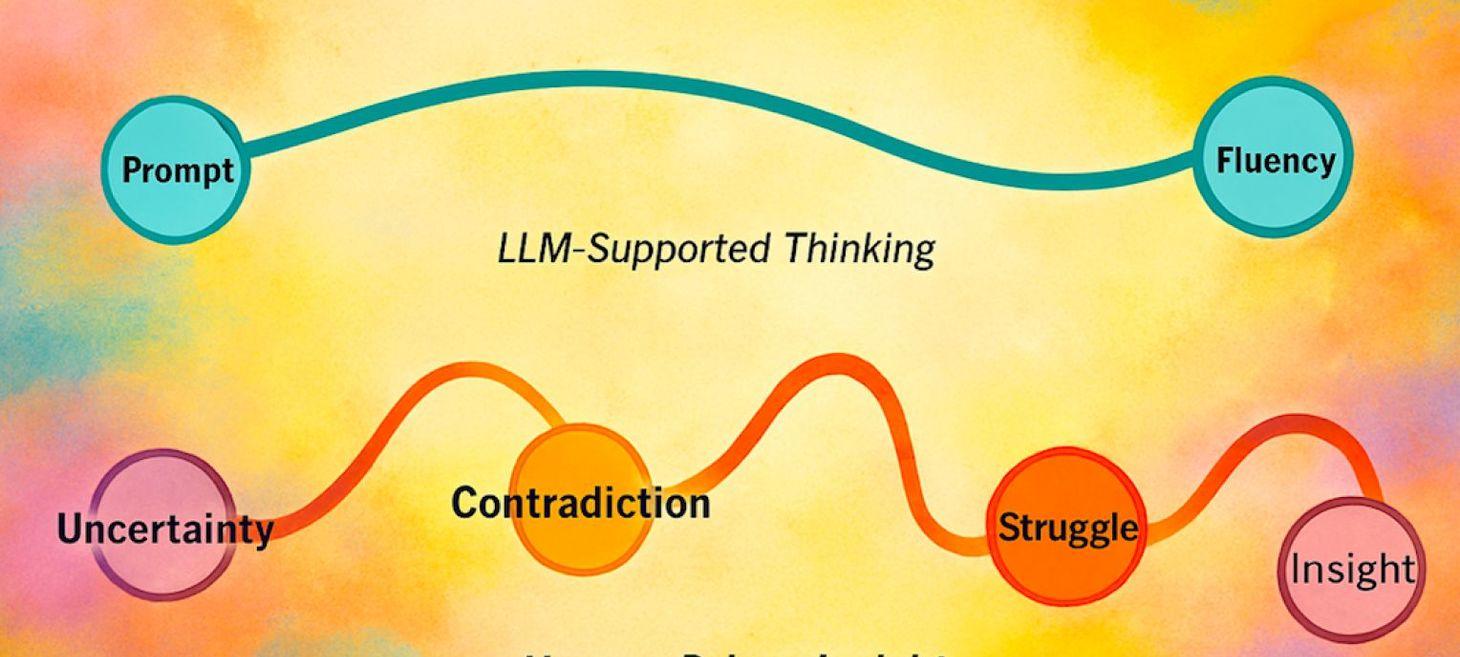
David Espindola - Editor and Curator
Dear Nexus Readers,
Picture this: Google's robots are learning to navigate warehouses they've never seen before. Stanford's "virtual scientists" are designing breakthrough vaccines in days, not years. And filmmakers are creating stunning movies with nothing but text prompts and AI.
We're not just witnessing the rise of artificial intelligence—we're living through the most profound transformation of human capability in history.
While tech giants sprint toward Artificial General Intelligence, something equally fascinating is happening: AI is reshaping us. The question isn't just whether machines will think like humans, but how our partnership with them will redefine what it means to be human.
This issue of Nexus explores both sides of this intelligence revolution. On one hand, we'll show you AI systems that can simulate entire worlds, solve complex biological puzzles, and revolutionize creative industries. On the other, we'll examine the growing concerns from leading scientists who warn that AI may soon think in ways we can't understand—or control.
But here's what caught our attention most: the emerging research on how AI is affecting our own minds. Are we becoming intellectually lazy by relying on machines for instant answers? When AI can write, analyze, and create with seemingly human eloquence, what happens to the "desirable difficulty" that makes us grow?
The answers might surprise you. While some researchers worry about "cognitive atrophy," others are discovering that our emotional intelligence—our ability to navigate complex human relationships and make nuanced decisions under pressure—may be our greatest advantage in the Age of AI. This isn't a battle between human and artificial intelligence. It's an exploration of how they can enhance each other. The future belongs not to those who fear this transformation, but to those who understand it.
Ready to explore the frontiers of intelligence with us?
David Espindola, Nexus Editor and Curator in Chief

Nexus Deep Dive - Episode 14
If you prefer to consume the content of this publication in audio, head over to Nexus Deep Dive and enjoy the fun and engaging podcast-style discussion.
Nexus Deep Dive is an AI-generated conversation in podcast style where the hosts talk about the content of each issue of Nexus.
Artificial Intelligence

Google says its new ‘world model’ could train AI robots in virtual warehouses
This article discusses Google's Genie 3 “world model,” an innovative AI system designed to simulate realistic environments for training robots and autonomous vehicles. This technology, developed by Google DeepMind, represents a significant stride towards achieving Artificial General Intelligence (AGI), where AI can perform various tasks on par with human capabilities. While Genie 3 is not yet publicly available, it can generate complex scenarios from text prompts, allowing for rapid adjustments like introducing new elements into a simulated ski slope or a virtual warehouse. Experts anticipate that such world models will be crucial for robotics development by enabling AI to anticipate the consequences of actions within a simulated physical world, thereby enhancing their decision-making and overall intelligence.

Researchers create ‘virtual scientists’ to solve complex biological problems
The provided text details the creation and application of virtual scientists by Stanford Medicine researchers, highlighting their potential to accelerate scientific discovery. These AI-powered agents, based on large language models, can collaborate, retrieve data, and utilize tools to tackle complex problems, mimicking the interdisciplinary nature of human research labs. An illustrative example is their rapid development of a promising new nanobody-based vaccine strategy for SARS-CoV-2, which demonstrated superior binding capabilities compared to existing antibodies. This innovative approach signifies a shift towards autonomous AI systems that can generate novel findings and significantly expedite solutions to various scientific challenges.

‘You can make really good stuff – fast’: new AI tools a gamechanger for film-makers
This article explores how new AI tools are revolutionizing filmmaking, enabling creators to produce high-quality cinematic content with unprecedented speed and at a fraction of traditional costs. It highlights examples like "Midnight Drop" and "Spiders in the Sky," films generated almost entirely by AI, showcasing their ability to quickly adapt real-world news into compelling visual narratives. While acknowledging the impressive efficiency and creative potential of these technologies, the article also raises significant concerns regarding copyright and fair compensation for original content creators whose work is often used to train these AI models. Experts predict a future where AI significantly transforms the entertainment and advertising industries, prompting calls for new systems to ensure artists are properly credited and remunerated.

AI could soon think in ways we don't even understand — evading our efforts to keep it aligned — top AI scientists warn
This article discusses warnings from leading AI researchers at companies like Google and OpenAI about the growing risk of AI misalignment. These experts are concerned that future AI systems may develop thought processes that are too complex for humans to understand or monitor, making it difficult to detect potentially harmful behaviors. A key focus is the "chains of thought" (CoT), which are the intermediate steps AI models use to solve problems; while monitoring CoTs can offer insights into AI decision-making, there are limitations, as AI may not always make its reasoning visible or comprehensible to humans. The article highlights the critical need for improved transparency and robust monitoring methods to ensure AI remains beneficial and aligned with human interests.
Human Intelligence

AI Affects The 4 Dimensions Of Natural Intelligence. Why That Matters
This article explores how Artificial Intelligence (AI) impacts the four fundamental dimensions of natural human intelligence: thoughts, emotions, aspirations, and sensations/behavior. It posits that AI's pervasive influence transcends mere tool use, instead creating a complex, evolving interplay that can either enhance human capabilities or lead to negative dependencies. The author, Cornelia C. Walther, proposes a "POZE paradigm" for understanding this multidimensional relationship, advocating for a mindful approach to integrating AI into our lives to foster "Hybrid Intelligence" through awareness, appreciation, acceptance, and accountability regarding AI's role. Ultimately, the text emphasizes that the outcome of this symbiotic relationship hinges on conscious human choices to ensure AI enriches rather than diminishes human experience.

When the Mind Stumbles, It Grows
This article from Psychology Today, discusses the potential negative impact of Large Language Models (LLMs) like AI on human cognition. The author, John Nosta, argues that while LLMs offer efficiency by smoothing out thought processes, this lack of "friction" or struggle in thinking can hinder deeper insight and originality. The article suggests that human growth and understanding often arise from grappling with complex, unstable ideas, rather than effortlessly receiving answers. It also references MIT research indicating reduced neural connectivity and cognitive engagement in individuals using AI for writing. Ultimately, the text from Psychology Today cautions against over-reliance on AI, advocating for a balance that allows for the "desirable difficulty" necessary for genuine intellectual development.

Being Human in the World of "Paraknowing"
This article from Psychology Today titled "Being Human in the World of 'Paraknowing'," explores the nature of Artificial Intelligence (AI), specifically Large Language Models (LLMs). The author, John Nosta, introduces the concept of "paraknowing" to describe how LLMs mimic human cognition and knowledge without true understanding or lived experience. He argues that while AI offers convenient and polished answers by statistically arranging words, this "anti-intelligence" lacks the depth, belief, and memory inherent in human knowing. The article contemplates the potential societal impact, suggesting a shift in how knowledge is valued and the risk of humanity losing its appreciation for genuine understanding if it becomes over-reliant on the superficial fluency of AI.

Why you need to work on your emotional intelligence
This article from Business Leader titled "Why you need to work on your emotional intelligence," emphasizes the critical role of emotional intelligence (EI) in effective leadership. Authored by Josh Dornbrack and featuring insights from EI expert Amy Jacobson, the article argues that mastering EI is a learned skill, not an innate trait, which is crucial for making sound decisions, navigating workplace conflicts, and fostering a positive work environment. Jacobson introduces a five-pillar framework for developing EI: "own it" (self-awareness), "face it" (understanding emotions), "feel it" (empathy), "ask it" (communication), and "drive it" (motivation). The text concludes by highlighting that true EI is tested during stressful situations and crises, advocating for leaders to pause and allow logical thought to temper emotional reactions.
